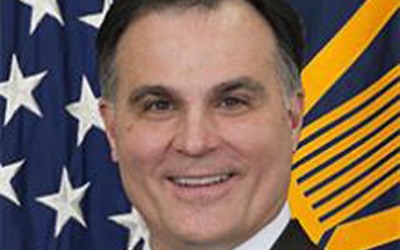
Energy Department CIO breaks down goals for IT modernization in 2020
The Energy Department has a new chief information officer and a plan to bring its infrastructure into the modern age.
The Energy Department has a new chief information officer and a plan to bring its infrastructure into the modern age. DOE CIO Chris “Rocky” Campione outlined four primary objectives to modernize and rationalize the IT infrastructure that supports his agency’s wide scope of programs.
In fiscal 2020, operational visibility, delivery excellence, delivering innovation and workforce development will be the name of the game.
“How do we make sure — and that’s everything from making sure we’re reskilling and retraining the federal workforce,” Campione said of the fourth objective, on Federal Monthly Insights — A New Approach in IT Modernization. “But’s also looking at how do we provide the information to our workforce so that we can make good decisions?”
Campione began his role in July and works closely with the CIOs of the national labs. He said DOE wants to make sure individuals working at the field sites have a good understanding of the risk profile of the department as a whole, not just of the national labs.
When it comes to modernization at DOE, he said the data centers are a concern. He said major activity in that area is planned for this year, as well as figuring out how to efficiently use the data centers staying behind.
“We have a lot of old data centers. So when we talk about data center consolidation, which is a much larger initiative — but the way we look at is how do we get out of some of our old data centers into the cloud? We talk about how do we modernize the IT that we use every day?” he said on Federal Drive with Tom Temin.
It’s important that the CIO identify places, through enterprise architecture, where applications can be modernized. But even more so, Campione said, that first IT modernization objective of operational visibility includes visibility into the cloud. It will be necessary to take on-premises services and put them into a multi-cloud environment.
“For cloud productivity, we’re standardizing on [Microsoft] Office 365, multiple tenant, but on the federal side we have Office 365. Part of our Technology Modernization Funds and the project is a 365 project across our labs and facilities,” he said. “But we’re also using [Amazon Web Services] for a number of our infrastructure-as-a-service-type opportunities.”
Related Stories

USDA says goodbye to contractor, GSA support for IT modernization Centers of Excellence
When tackling delivery, new tools such as artificial intelligence and robotic process automation can help. He said this is a major focus for the secretary and deputy secretary of Energy.
“Within the last two weeks, they just … announced the creation of the Office of Artificial Intelligence in the Office of Science. So it’s a major departmental initiative that I am happy to support,” Campione said. “And one of some of the things we’re doing is … we have a unique opportunity with AI.”
The CIO’s office can offer knowledgeable people to work on algorithms and provide insight on evaluating data. He also said they can offer some of the fastest computers in the world, and even recently signed several agreements around veterans’ health initiatives. All of this is to say AI can do more than just help DOE manage the nuclear stockpile.
“So it’s even outside of what you might think of from that core weapons? Or how do we do the day to day, but how do we help the American people? How do we help our veterans? And how do we look at health issues moving forward?” he said.
Copyright © 2025 Federal News Network. All rights reserved. This website is not intended for users located within the European Economic Area.
Amelia Brust is a digital editor at Federal News Network.
Follow @abrustWFED




